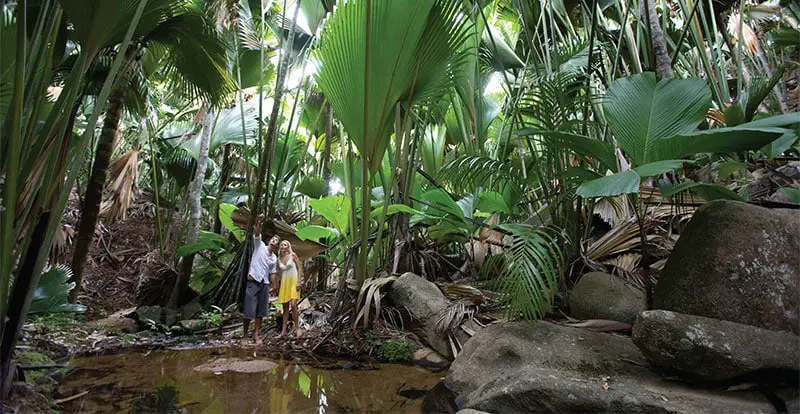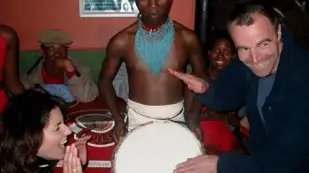31 Niche Tourism Groups
If you thought that Niche Tourism covers just a handful of interest groups, think again. In the 5th edition of his book ‘Marketing Tourism in South Africa‘, Richard George identified 20 distinct Special Interest or ‘Niche’ tourism groups, and we’ve added 11 more to this growing list.
Special interest tourism (SIT) to South Africa has increased rapidly in the last few years. Special interest tourists are motivated by the desire to go on holiday and take part in a current interest or develop a new interest in a new or familiar location.
Special interest tourism is a niche market, similar to adventure tourism, but it differs in that it involves little or no physical exertion. The special interest may be a one-off interest (for example, going on a safari, white-water-rafting or shark-cage-diving) or an ongoing interest (for example, spiritual tourism).
Some of the most popular special interest tourism products include the following:
1. Agri-tourism
Agri-tourism (aka agro-tourism or farm-based tourism) involves activities such as fruit-picking. Tourists may go on tours of working farms or on established tourist routes such as brandy or wine routes. They may visit factories that process farm produce (for example, jam) and may stay overnight in farmhouse B&Bs.
2. Ancestry tourism
Tourists travel to destinations with the aim of learning more about and possibly tracing their ancestors.
3. Architourism (or architectural tourism)
Tourists are attracted by the design and buildings of a destination.
4. Avitourism (or birding tourism)
Birdwatching is a popular hobby all over the world. Southern Africa is one of the richest birding regions, with a network of birding routes. BirdLife South Africa, a membership-based non-profit organisation, represents the birding tourism sector in South Africa.
5. Battlefields tourism
Tours to former battlefields have grown in popularity. Popular battlefields sites in South Africa include Isandlwana in KwaZulu-Natal and the Western Front (Normandy, the Somme) in Europe.
6. Eco-tourism (or wildlife tourism)
Tourists view the flora or the game of an area. This includes whale-watching.
7. Gambling tourism
Tourists visit casino destinations and holiday in gambling cities that have many casinos.
8. Gastronomy tourism (or food tourism)
“Foodies” visit a destination in order to experience cuisine and food festivals. Gastronomy tourism is defined as travel that has food as the primary factor of influence in travel behaviour and in the decision-making process.
9. Lighthouse tourism
Tourists visit and sometimes stay in lighthouses that provide accommodation for tourists.
10. Military tourism
Tourists who visit war memorials, battlefields, forts and war museums.
11. Nostalgia tourism
Tourists return to a destination for sentimental reasons. For example, they go back to a destination where they had a memorable childhood holiday, or where they lived or studied in their younger years.
12. Photographic tourism
Tourists visit Africa’s natural and cultural attractions in order to take photographs.
13. Property tourism
Tourists travel to holiday destinations to purchase residential property. The property tourism operator who organises the tour may reimburse all or a portion of the cost of the holiday that was taken in order to view the property if the tourist purchases the property.
14. Rural tourism (or Cultural tourism)
This includes home-stays so that tourists can experience rural life and food.
15. Safari tourism
Tourists participate in art safaris and rail safaris.
16. Spa tourism
Tourists visit mineral or hot springs. This type of niche tourism is not bound to any season. It is a year-round activity.
17. Wedding tourism
This involves honeymooners and couples who travel to destinations to have their wedding ceremonies. Wedding tourists tend to travel in quite large numbers.
18. Wellness tourism (or Spiritual tourism)
Tourists come to a destination in order to unwind and enjoy reflexology and massages, for example.
19. Wildlife tourism
Tourists participate in activities such as safaris, viewing marine wildlife and photographing wildlife.
20. Wine tourism
Tourists visit wine-growing regions and wine routes, vineyards, wineries (cellar tours and tasting rooms), wine festivals and so on, for the purpose of consuming or purchasing wine.
South Africa has excellent wine regions and offers a variety of additional benefits to wine tourists, including natural and cultural visitor attractions. The country’s wine routes are ranked as the fourth most popular visitor attraction for international and domestic tourists.
The Winelands in the Western Cape, Napa Valley in California, the USA and Adelaide in Australia are examples of world-class wine tourism destinations.
More Specialist Tourism Groups:
Here are more niche tourism groups to add to the above list – Editor.
21. Accessible tourism
Accessible tourism is ‘Tourism For All’. It’s about making travel and hospitality more reachable and pleasurable for travellers with universal access requirements. It’s also about sensitising yourself to the language of disability.
22. Adventure tourism (or Adventure travel)
Adventure travel is a type of tourism, involving exploration or travel with perceived (and possibly actual) risk, and potentially requiring specialized skills and physical exertion. Adventure tourism is rapidly growing in popularity, as tourists seek different kinds of vacations.
23. Art Tourism
Art tourism is a term that is used when people travel in order to visit, explore and engage in activities related to art. It includes travelling to art festivals, art galleries, music concerts, and dance and book festivals, and to explore the homes of famous artists, musicians, writers, and poets.
24. Cruise tourism
Cruise tourism is a great way to expose a country’s beauty and culture and also a nice way to travel the world giving tons of jobs and employment to places that it visits, mostly “ports of call”.
25. Cultural tourism
This kind of tourism normally occurs in urban areas with particular historical significance or cultural facilities, such as museums and theatres.
Cultural tourism also highlights the various traditions of indigenous communities through observing their rituals, customs as well as their values and lifestyle. Tourism, therefore, serves as the carrier of culture and cultural tourism has become the platform for cultural consumption.
26. Environmental Tourism (or Green tourism)
Environmental Tourism, – also referred to as Ecotourism, Sustainable Tourism and Responsible Tourism – are terms rooted in the concept of development that “meet the needs of the present without compromising the ability of future generations to meet their own needs.”
27. Film Tourism
Film tourism is a growing phenomenon worldwide, motivated by both the growth of the entertainment industry and the increase in international travel. Film-induced tourism explores the effects that film and TV-productions have on the travel decisions made when potential tourists plan their upcoming holiday or visit to a destination.
28. Luxury Tourism
According to Statista, luxury tourism as a niche market is defined as revenues derived by a destination from acquisitions of consumer goods, services, and valuables for and during trips by individual tourists who have net assets of over one million U.S. dollars (read our article ‘Growth Forecasts for Luxury Tourism Market’ via the links at the end of this article).
29. Voluntourism (Volunteer travel or volunteering)
Voluntourism is a form of tourism in which travellers participate in voluntary work, typically for a charity or cause.
A good example of volunteer programmes in the wildlife conservation space is Ashia Cheetah Sanctuary. Their reciting of Benjamin Franklin’s famous quote: “Tell me and I’ll forget; Show me and I may remember; Involve me and I’ll understand” encapsulates the ethos behind voluntourism.
30. Youth tourism (or Youth travel)
Youth tourism is defined as people aged between 15 to 30 who take independent trips of less than one year.
31. Red-tape tourism
OK, this one is more tongue-in-cheek! Could Home Affairs offices, licencing departments and similar facilities in small towns compete on service delivery to create a new domestic tourism niche? Read this article: Red-tape tourism.
If you have any other niche tourism groups to add to the list just COMMENT below.
About the Author: Richard George is an Associate Professor and Research Director at the School of Management, University of Cape Town. For more information Telephone: +27 (0)21 650 4245 or Email richard.george@uct.ac.za
Read more on this topic:
- Avitourism in South Africa
- Cruise Tourism Potential in South Africa
- A Guide to Cultural Tourism
- Ecotourism
- Ecotourism: A Case Study
- Environmental Tourism – Part 1
- Environmental Tourism – Part 2
- Environmental Tourism – Part 3
- Film Tourism: Exploring the benefits
- Food Tourism: How to Get Your Slice of the Pie
- Growth Forecasts for Luxury Tourism Market
- Voluntourism: Keeping it Sustainable
- Volunteerland: The Worlds Largest Adult Traveller Population





